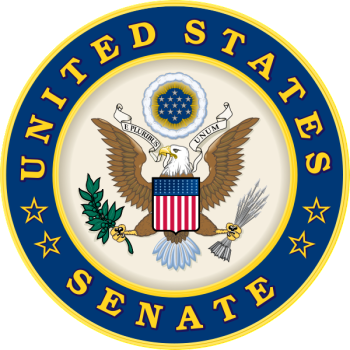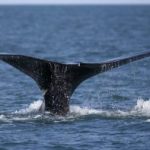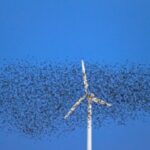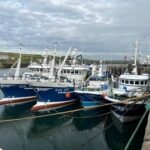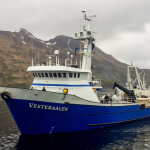Tag Archives: Pew Charitable Trusts
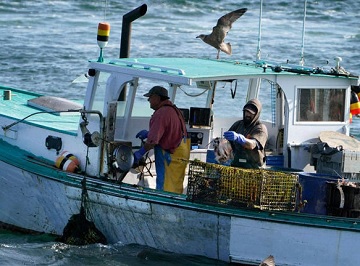
Green groups targeting blue-collar lobstermen are largely funded by dark money
Environmental groups that have led litigation targeting the lobster fishing industry have been heavily funded by various liberal dark money groups that don’t disclose their individual donors, a Fox News Digital review of tax filings found. For example, the Center For Biological Diversity has received millions of dollars from left-wing dark money groups including the Rockefeller Family Fund, the Patagonia Fund and Pew Charitable Trusts. The center has been the recipient of grants worth nearly $8 million from the Sandler Foundation, $1 million from the Wilburforce Foundation, $850,000 from Environment Now and another $815,000 from the Frankel Family Foundation, according to Influence Watch. Video, >click to read< 07:42

North Atlantic Right Whale: Extinction Is Looming. Everyone’s Fighting.
This May, new rules created for the lobster industry by the National Marine Fisheries Service will become official policy for boats operating in right whale territory. The agency estimates that lobster and Jonah crab traps are responsible for 95 percent of vertical end-line ropes in the areas where whale protections apply and therefore pose the most risk for entangling whales. The Fisheries Service says these changes will reduce the risk of death and serious injury by 69 percent. But in the months after the rules were finalized, the agency has seen pushback from conservation groups, who argue the new protections aren’t enough, and lobster fishing crews, who say the rules will harm their business. >click to read< 14:22

Held Hostage For Ropeless? Reject the Pew Petition for 3 lobster area closures that protect no Right Whale!
Maine Delegation Calls on Commerce Secretary to Reject Petition for Seasonal and Dynamic Closures in Parts of Maine’s Lobster Fishery – Maine’s congressional delegation today pressed Commerce Secretary Gina Raimondo to reject a petition by the Pew Charitable Trusts to impose seasonal and dynamic closures on parts of Maine’s lobster fishery. The lawmakers’ objections centered on the limited effects the closures would have on protecting right whales at significant economic cost on lobstering communities up and down the state’s coast. The rulemaking proposed in the petition would close three different areas of Lobster Management Area 1 to vertical line trap fishing. Pew proposed opening those areas to ropeless fishing, ignoring the reality that ropeless technology is not commercially available, financially viable for lobstermen, or proven safe and effective. >click to read<. Read a copy of the letter here.
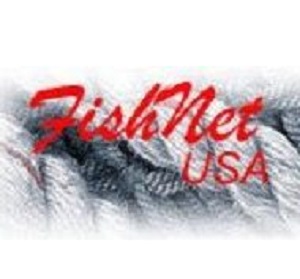
Wind farms: Where are all of the ocean saviors?
The precautionary principle has deep roots finding expression in sayings such as ‘an ounce of prevention is worth a pound of cure’ or ‘better safe than sorry’. The use of the precautionary principle in ecosystem management is especially important,,, Repeated failures of management highlighted by the collapse of northern cod off Canada, the California sardine fishery, and herring, sandeels, blue whiting and capelin stocks in the North Sea have demonstrated the need for this approach in order to help address scientific uncertainty. Yet when it comes to protecting huge swaths of ocean,,, Clog  our near shore and offshore waters with hulking (approaching 1,000 feet tall today, who knows what’s in store for tomorrow?) structures supporting huge rotors with tips moving through the air at velocities approaching 200 miles per hour? So what? Festoon our sea beds with electrical cables carrying huge amounts of electricity, And what of undersea server farms,,, >click to read< 15:43 Nils E. Stolpe/FishNet USA. © 2021 Nils E. Stolpe, July 31
our near shore and offshore waters with hulking (approaching 1,000 feet tall today, who knows what’s in store for tomorrow?) structures supporting huge rotors with tips moving through the air at velocities approaching 200 miles per hour? So what? Festoon our sea beds with electrical cables carrying huge amounts of electricity, And what of undersea server farms,,, >click to read< 15:43 Nils E. Stolpe/FishNet USA. © 2021 Nils E. Stolpe, July 31
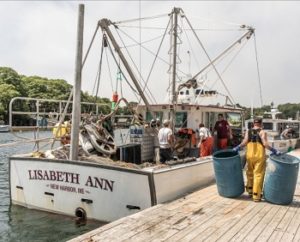
Prime Lobster Season Is Here, but Mike Dawson Isn’t Celebrating.
Mike Dawson (self-employed) Location: New Harbor, Maine Employees: 1, Status: Open, essential industry. The lobsters have just started to “come on” for the 2020 season, which in the lexicon of a Maine lobsterman means the annual lobster migration and catch has begun for the summer. Normally, 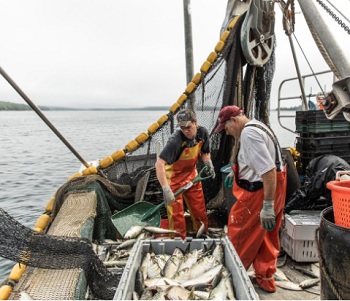 that would signal a time for the state’s 5,000 lobster harvesters to spend all their time setting and hauling traps. Not this year. This season is marked by weak demand from restaurants across the country and seafood processors that are taking less meat during the coronavirus pandemic. International markets have slammed shut. As a result, lobster prices are weak.Some lobstermen are still sitting on the sidelines, collecting unemployment. Others, like Mike Dawson, who fishes off New Harbor, Maine, have diversified by catching pogeys, or bait fish, in addition to catching lobster. 16 photo’s, >click to read< 16:05
that would signal a time for the state’s 5,000 lobster harvesters to spend all their time setting and hauling traps. Not this year. This season is marked by weak demand from restaurants across the country and seafood processors that are taking less meat during the coronavirus pandemic. International markets have slammed shut. As a result, lobster prices are weak.Some lobstermen are still sitting on the sidelines, collecting unemployment. Others, like Mike Dawson, who fishes off New Harbor, Maine, have diversified by catching pogeys, or bait fish, in addition to catching lobster. 16 photo’s, >click to read< 16:05

Governor Mills Urges Commerce Secretary Ross to Reject Pew Charitable Trusts prohibition petition
Standing up for Maine’s vital lobster industry and its hardworking men and women, Governor Janet Mills today urged U.S. Secretary of Commerce Wilbur Ross to deny a petition by Pew Charitable Trusts that would prohibit the use of vertical lines in the American lobster and Jonah crab fisheries in four areas of the New England coast. In a letter sent to the Commerce Secretary yesterday, Governor Mills explained that the petition, which asks for immediate year-round closures south of Martha’s Vineyard and Nantucket and three seasonal offshore closures in the Gulf of Maine to protect North Atlantic right whales, “not only fails to provide additional protections for right whales, but contrary to Pew’s assertions, it will also cause significant economic impact to Maine’s iconic lobster fishery.” >click to read< 17:03
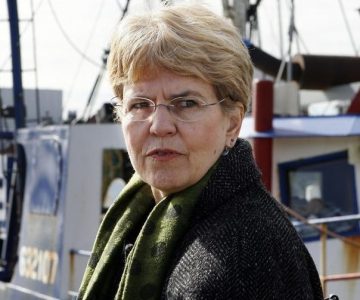
Know your ENGO History! Pew’s Conquest Of The Ocean
This is the story of how a handful of scientists set out from Oregon with an unshakable belief that they knew what was best for the rest of us. They ended up conquering the world (or at least the watery portions of it) and got rich along the way, while the fishermen and their families only worked harder and got poorer. When their scientific dogma connected with nearly unlimited resources, the earth quaked and the resulting tidal wave swept aside all the usual checks and balances. It carried along the media, the politicians, the government agencies and the non-governmental organizations with such force that seemingly no one could stand against the tide. By David Lincoln, >click to read< 15:25
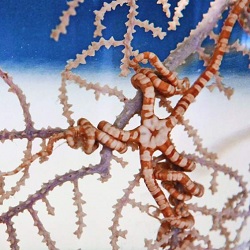
Plan would protect 21 coral hot spots in Gulf of Mexico
The plan would create 21 protected areas off the coasts of Texas, Louisiana, Alabama, Mississippi and Florida. Thirteen of the areas would carry new commercial fishing restrictions, and that has attracted the attention of fishing groups, who want the government to take a cautious approach. Pew Charitable Trusts has characterized the plan as a way to protect nearly 500 square miles of slow-growing coral “hot spots,” and is championing the protection plan as a way to spare vulnerable corals from fishing gear. >click to read< 10:30

Gloucester: Lobstermen push against whale rules – ‘We’ve borne the brunt’
The evening began with a presentation from NOAA Fisheries’ Mike Asaro and Colleen Coogan that offered a historical backdrop on the status of the North Atlantic right whale stock and an explanation of the specific protectionist measures adopted in April by the Atlantic Large Whale Take Reduction Team.,, In Massachusetts and New Hampshire, lobstermen are tasked with reducing their vertical lines by 30 percent. In Maine, where there has been significant pushback by state officials and the nation’s most formidable lobster fleet, the target is significantly higher — 50 percent. Then came the comment period and the usual choosing of the sides. Photo’s, >click to read< 22:04
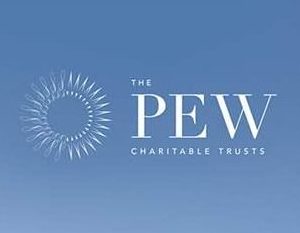
The Pew Charitable Trusts Urge Fishing-Industry Changes to Protect Right Whales
Support for this reporting was provided by The Pew Charitable Trusts. Katharine Deuel, an officer with The Pew Charitable Trusts, said action can’t come soon enough for the dwindling right whale population, but she understands the plight of the fishing industry too.,,, The Scientific Assistance for Very Endangered Right Whales, or SAVE Right Whales Act, was introduced by Rep. Seth Moulton of Massachusetts (supports ropeless gear development),,, Charles “Stormy” Mayo directs the Right Whale Ecology Program at the Center for Coastal Studies. He said he feels for the fishermen,,, >click to read< 16:31
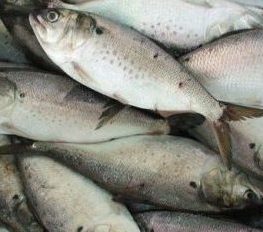
Our view: Abundant menhaden draw whales and endless dispute over its fishery
A sustainable and growing menhaden fishery, though, isn’t enough for some. Since at least 1888, when the Rod and Reel Association claimed commercial menhaden boats were taking fish better left as food for species they liked to catch and eat, people have fought over the best use for menhaden. In the fall of 2017, a coalition of environmental and sport fishing interests, partly led by a unit of the Pew Charitable Trusts, successfully lobbied the fisheries commission to switch to a unique new management approach for a fishery, one based on estimates of how the menhaden population affects other fish and wildlife that prey upon it. >click to read<10:42
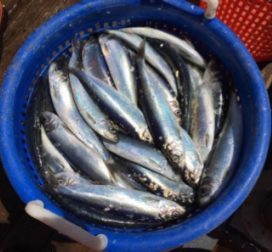
New England Fishery Management Council scale back Atlantic herring catch
The New England Fishery Management Council unanimously approved a new management approach that will dramatically cut the catch limits for herring over the next three years, but the regulatory board stopped short of temporarily shutting down the fishery, as one option on the table would have required. The new rules adopted by the council, which put in place a formula for setting annual catch limits, were applauded by some environmental advocates as recognition of the fish’s key role in the larger ocean ecosystem. But the decision was made over the objections of groups representing commercial fishing boats that catch herring and lobstermen who use the fish as bait. >click to read<08:02

Atlantic herring quotas may be cut again
Later this month, fisheries regulators will decide whether to adopt a new set of regulations, known as Amendment 8, that could include restricting fishing areas for the herring and could, for the first time, account for the fish’s place in the larger ecosystem. The New England Fishery Management Council’s Atlantic herring committee will meet next week to vote on a recommendation to the full council, which meets the following week. Consideration of the new management system, and the restrictions it would bring, follows the announcement in August that next year’s quota for Atlantic herring had been cut by 55 percent from its original level. >click to read<16:06
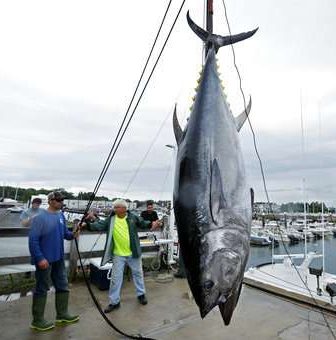
A controversial comeback for a highly prized tuna
“There’s probably no fish that’s ever been more politicized than Atlantic bluefin tuna,” said Golet, a University of Maine professor. “People get a passion for this fish. And people are making a living off of this fish.” The fish have long been at the center of a battle among commercial fishermen who can make a huge amount of money on a single fish, environmentalists who see them as marvels of marine migration, and consumers who pay a hefty price for them in restaurants.,, But international regulators say the species has recently recovered enough that it can withstand more fishing, and U.S. ocean managers implemented an increase of about 17 percent for this summer, to the delight of fishing groups. The decision prompted environmental groups to renew their calls for holding the current line on quotas. >click to read<08:30
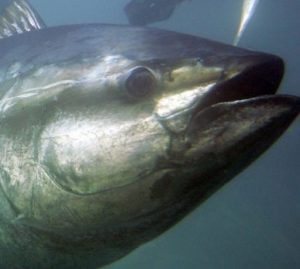
Con groups disagree with NOAA decision to remove Western Atlantic bluefin from overfished list
The decision by NOAA Fisheries to remove Western Atlantic bluefin tuna is not sitting well with conservationists. Last week, the agency released its Status of U.S. Fisheries report for 2017. In it, officials announced that the number of stocks on the overfished list had dropped to 35, an all-time low. The Western Atlantic bluefin was among six stocks removed from the overfished list. NOAA, in a press release, said “significant scientific uncertainty” about the stock after last year’s assessment led to the ruling. >click to read<13:29
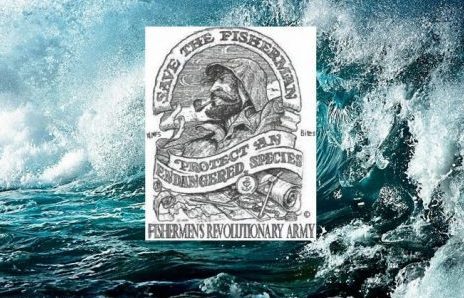
Nil’s Stolpe writes, The Magnuson-Stevens amendment I want under the Christmas tree
OVERFISHING! This has become one of the oceans branch of the doom and gloom prognisticator’s (aka Environmental Non Governmental Organizations or ENGOs) principal calls for alms. To wit, they have collectively raked in hundreds of millions of dollars from big business-supported foundations and trusting members of the public to persecute (generally commercial) fishermen who they preach are the cause of “overfishing,” the major threat to the sanctity of the oceans. (I’ll note here that the Pew “Charitable” Trusts was the multibillion dollar foundation that initiated the war on fishermen.) This purposeful misuse of the term “overfishing” has been one of the most subtle and most effective weapons in the anti-fishing activists’ arsenal. Nils Stolpe FishNetUSA >click to read< 18:00
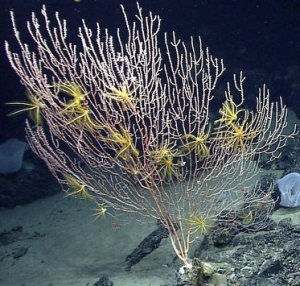
Feds vote to protect more corals in Atlantic Ocean
Federal fishing regulators on Tuesday approved a compromise they said would expand the amount of coral habitat preserved in the Atlantic Ocean while also protecting fishing interests. The New England Fishery Management Council voted on coral protections in an area south of Georges Bank, which is one of the most important commercial fishing areas in the Northeast. The decision came about seven months after the council approved protections in another key New England fishing area, the Gulf of Maine, in June. >click here to read< 17:50 
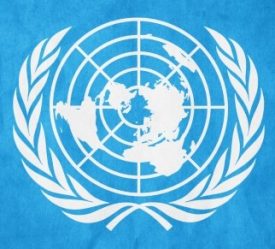
The UN Starts a Conservation Treaty for the High Seas
The nations of the world have launched a historic two-year process to create the first-ever international treaty to protect life in the high seas. Covering nearly half of the planet, the high seas are international waters where no country has jurisdiction. These waters, which reach depths of nearly seven miles, are filled with life, from valuable fish to plankton. They help generate the oxygen we breathe and regulate the global climate. “This is a once-in-a-generation opportunity to get ocean governance that puts conservation and sustainable use first,” says Liz Karan, senior manager for the high seas program at the Pew Charitable Trusts. click here to read the story 16:19
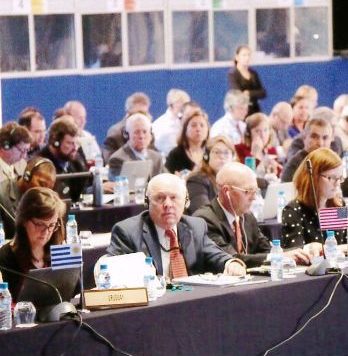
THE 2018 MAKO SEASON IS SAVED!
The United States and other nations recently finished up a week of tuna, swordfish and shark management discussions at the 2017 annual meeting of International Commission for the Conservation of Atlantic Tunas (ICCAT) in Marrakech, Morocco. The good news from overseas is that there’s a bluefin tuna quota increase coming for U.S. fishermen; perhaps even better news is that motions by some ICCAT delegates to shut down the North Atlantic mako shark fishery failed (though an increase in harvest size is forthcoming.),,, The final agreement focuses on measures to reduce fishing mortality and efforts to further strengthen data collection, while protecting opportunities for U.S. recreational and commercial fishermen to retain small amounts of shortfin mako sharks. click here to read the story 15:35

Opinion: Menhaden decision sticks to science-based fisheries management
This month, the Atlantic States Marine Fisheries Commission updated its menhaden management plan, taking into account the increasing menhaden stock. The commission was heavily lobbied by the fishing industry and by a coalition of environmentalists and sport-fishing interests led by a unit of the Pew Charitable Trusts. The Menhaden Fisheries Coalition wanted to increase its allowable catch by about 40 percent, to 280,000 metric tons per season. The environmental coalition wanted to leave more fish in the ocean, which the MFC figured would cut the industry’s catch by about a quarter, to 147,000 tons. click here to read the story 08:12
Decision coming Monday on Menhaden management
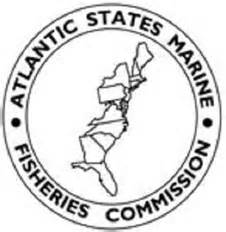 The Atlantic States Marine Fisheries Commission will decide on a new management plan for Atlantic menhaden at a meeting near Baltimore on Monday. Fishermen and environmentalists have a lot riding on how much of the resource is set aside for fishing, and how much is left for wildlife predators. Known as Amendment 3, the new rule will set the future course for managing the forage fish species eaten by many other fish, birds like osprey, dolphins and whales. click here to read the story Atlantic Menhaden Management Board – The Board will meet to consider approval of Amendment 3 to the Interstate Fishery Management Plan for Atlantic Menhaden. click here to read 3 sets of meeting materials 10:35
The Atlantic States Marine Fisheries Commission will decide on a new management plan for Atlantic menhaden at a meeting near Baltimore on Monday. Fishermen and environmentalists have a lot riding on how much of the resource is set aside for fishing, and how much is left for wildlife predators. Known as Amendment 3, the new rule will set the future course for managing the forage fish species eaten by many other fish, birds like osprey, dolphins and whales. click here to read the story Atlantic Menhaden Management Board – The Board will meet to consider approval of Amendment 3 to the Interstate Fishery Management Plan for Atlantic Menhaden. click here to read 3 sets of meeting materials 10:35
“Fish Wars” or a Regime Shift in Ocean Governance? Nils E. Stolpe
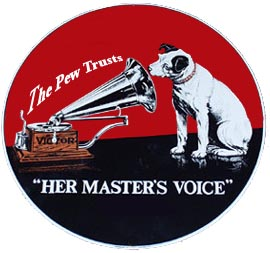 The reasons for Big Oil’s (now more accurately Big Energy’s) focus on fisheries – and on demonizing fishing and fishermen – has been fairly obvious since a coalition of fishermen and environmentalists successfully stopped energy exploration on Georges Bank in the early 80s. Using a handful of ocean oriented ENGOs as their agents, the Pew Charitable Trusts and other “charitable” trusts funded a hugely expensive campaign that the domestic fishing industry is still suffering from, but that campaign has paid off handsomely to the entities that participated in or funded it.,, If anyone wonders why one of the founders of Microsoft might be interested in supporting research by Daniel Pauly, from an article in the NY Times last week,,, and retired admiral and Chairman of the Board of the U.S. Naval Institute James G. Stavridis had a column in the September 14 Washington Post titled The Fishing Wars Are Coming. click here to read the article 14:48
The reasons for Big Oil’s (now more accurately Big Energy’s) focus on fisheries – and on demonizing fishing and fishermen – has been fairly obvious since a coalition of fishermen and environmentalists successfully stopped energy exploration on Georges Bank in the early 80s. Using a handful of ocean oriented ENGOs as their agents, the Pew Charitable Trusts and other “charitable” trusts funded a hugely expensive campaign that the domestic fishing industry is still suffering from, but that campaign has paid off handsomely to the entities that participated in or funded it.,, If anyone wonders why one of the founders of Microsoft might be interested in supporting research by Daniel Pauly, from an article in the NY Times last week,,, and retired admiral and Chairman of the Board of the U.S. Naval Institute James G. Stavridis had a column in the September 14 Washington Post titled The Fishing Wars Are Coming. click here to read the article 14:48
DRILLING FISHERMEN By Karen Wall
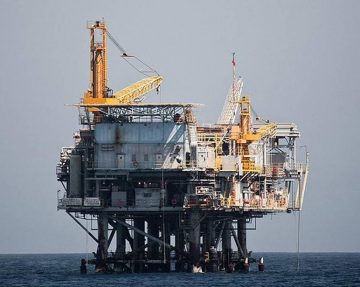 For the last 20 years, the screws have been continually tightened on fishermen. A few flounder here, a few grouper there … slowly choking the life out of both commercial and recreational fisheries, with the incessant mantra that fishermen didn’t care about the resource and that at the rate we were going, the oceans would be empty by 2050. The contention was and has been that fishermen lacked any semblance of self-control, and that they needed to have their industry saved from themselves. That was the argument used in 2005 and 2006, when Lee Crockett, the director of federal fisheries policy for the Pew Charitable Trusts, was leading the charge to cut the summer flounder quota to 5 million pounds, economic issues be damned. Crockett continually insisted that summer flounder were in danger of reaching the extinction tipping point because of greedy, shortsighted fishermen — a common theme in the Pew-funded arguments about fishermen. click here to read the op-ed 07:07
For the last 20 years, the screws have been continually tightened on fishermen. A few flounder here, a few grouper there … slowly choking the life out of both commercial and recreational fisheries, with the incessant mantra that fishermen didn’t care about the resource and that at the rate we were going, the oceans would be empty by 2050. The contention was and has been that fishermen lacked any semblance of self-control, and that they needed to have their industry saved from themselves. That was the argument used in 2005 and 2006, when Lee Crockett, the director of federal fisheries policy for the Pew Charitable Trusts, was leading the charge to cut the summer flounder quota to 5 million pounds, economic issues be damned. Crockett continually insisted that summer flounder were in danger of reaching the extinction tipping point because of greedy, shortsighted fishermen — a common theme in the Pew-funded arguments about fishermen. click here to read the op-ed 07:07
Pew Trust proposes Arctic drilling standards – Many environmental groups flat-out oppose offshore Arctic drilling, but Pew’s Marilyn Heiman says they do not go that far. “Pew does not have a position that we oppose all offshore drilling, but we do believe there are ways that this can be done right,” Heiman said. click here
Catch Shares Editorials – Articles that are a must read for every fisherman concerned about their right to fish!!!!! click here
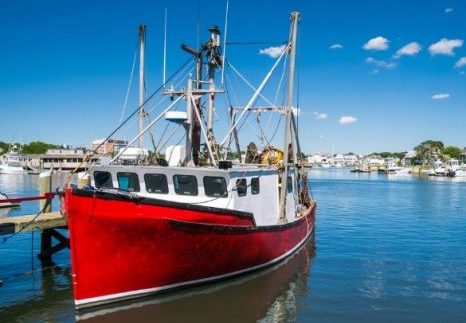
Advancing fishing rule aims to protect deep-sea coral in New England waters
Fishing trawlers bring in an average of $6.4 million annually to Bay State ports from fish scooped off seabeds 600 meters or more below the surface of New England waters. In an effort to save coral on the ocean floor, the New England Fisheries Management Council is advancing a proposed restriction on draggers and trawlers fishing at those depths. The council’s Habitat Committee signed off Tuesday on the proposal, which affect fishing operations in a roughly 25,000 square mile area. If it is passed by the full council it would need to go through the National Marine Fisheries Service, also known as NOAA Fisheries, before it would go into effect. Environmental groups Wild Oceans, Earthjustice, Pew Charitable Trusts and Conservation Law Foundation urged the council’s scientists to study an alternative proposal, which they said would protect more coral than the plan the council advanced. The council agreed to study the conservation groups’ proposal. click here to read the story 16:30
Did catch shares enable the Codfather’s fishing fraud?
 Carlos Rafael’s guilty plea late last month of falsifying fish quotas, conspiracy and tax evasion has prompted renewed criticism of one of the most contentious parts of the New England groundfish fishery’s management system: catch shares.Rafael, who dubbed himself “The Codfather,” owned one of the largest commercial fishing fleets in the United States, and for some community fishermen in New England, his case represents consolidation run amok. Consolidating fishing permits, they say, also centralizes power, making fraud more likely. But for environmentalists who support catch shares as a way to reduce overfishing, consolidation isn’t inevitable. They say Rafael’s case highlights the need for better monitoring and fraud protections to prevent the sort of cheating that can plague any fishery management system. click here to read the rest 19:09
Carlos Rafael’s guilty plea late last month of falsifying fish quotas, conspiracy and tax evasion has prompted renewed criticism of one of the most contentious parts of the New England groundfish fishery’s management system: catch shares.Rafael, who dubbed himself “The Codfather,” owned one of the largest commercial fishing fleets in the United States, and for some community fishermen in New England, his case represents consolidation run amok. Consolidating fishing permits, they say, also centralizes power, making fraud more likely. But for environmentalists who support catch shares as a way to reduce overfishing, consolidation isn’t inevitable. They say Rafael’s case highlights the need for better monitoring and fraud protections to prevent the sort of cheating that can plague any fishery management system. click here to read the rest 19:09
Marine National Monument Pushback: The Fight Over Papahanaumokuakea Just Escalated
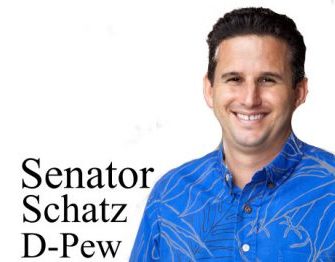 Government officials from the United States and three of its territories are working to undermine President Barack Obama’s marine conservation legacy less than four months after he left office. Obama used his executive authority in August to dramatically expand protected areas in the Pacific, the largest being the four-fold expansion last summer of Papahanaumokuakea Marine National Monument, which now covers 583,000 square miles in the Northwestern Hawaiian Islands. But with the Trump administration taking over in January, commercial fishermen and others who vehemently opposed the expansion of that monument and other marine preserves have renewed the fight.,, Leaders of the eight councils followed up with a March 1 letter to Trump explaining why they thought it was bad policy to keep American fishing vessels out of the monuments, saying it has “disrupted” the councils’ ability to manage the fisheries and eliminated the vessels’ ability to act as “watchdogs” over U.S. fishing grounds threatened by foreign fleets. click to continue reading the story here 08:17
Government officials from the United States and three of its territories are working to undermine President Barack Obama’s marine conservation legacy less than four months after he left office. Obama used his executive authority in August to dramatically expand protected areas in the Pacific, the largest being the four-fold expansion last summer of Papahanaumokuakea Marine National Monument, which now covers 583,000 square miles in the Northwestern Hawaiian Islands. But with the Trump administration taking over in January, commercial fishermen and others who vehemently opposed the expansion of that monument and other marine preserves have renewed the fight.,, Leaders of the eight councils followed up with a March 1 letter to Trump explaining why they thought it was bad policy to keep American fishing vessels out of the monuments, saying it has “disrupted” the councils’ ability to manage the fisheries and eliminated the vessels’ ability to act as “watchdogs” over U.S. fishing grounds threatened by foreign fleets. click to continue reading the story here 08:17
D.B. Pleschner: Study: No correlation between forage fish, predator populations
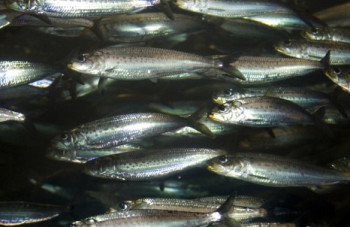 On April 9-10, the Pacific Fishery Management Council is meeting in Sacramento to deliberate on anchovy management and decide on 2017 harvest limits for sardine, two prominent west coast forage fish. Extreme environmental groups like Oceana and Pew have plastered social media with allegations that the anchovy population has crashed, sardines are being overfished and fisheries should be curtailed, despite ample evidence to the contrary. Beyond multiple lines of recent evidence that both sardines and anchovy populations are increasing in the ocean, a new study published this week in the journal Fisheries Research finds that the abundance of these and other forage fish species is driven primarily by environmental cycles with little impact from fishing, and well-managed fisheries have a negligible impact on predators — such as larger fish, sea lions and seabirds. This finding flies directly in the face of previous assumptions prominent in a 2012 study commissioned by the Lenfest Ocean Program, funded by the Pew Charitable Trusts, heirs of Sun Oil Company. The Lenfest study concluded that forage fish are twice as valuable when left in the water to be eaten by predators and recommended slashing forage fishery catch rates by 50 to 80 percent. click here to continue reading the article 20:39
On April 9-10, the Pacific Fishery Management Council is meeting in Sacramento to deliberate on anchovy management and decide on 2017 harvest limits for sardine, two prominent west coast forage fish. Extreme environmental groups like Oceana and Pew have plastered social media with allegations that the anchovy population has crashed, sardines are being overfished and fisheries should be curtailed, despite ample evidence to the contrary. Beyond multiple lines of recent evidence that both sardines and anchovy populations are increasing in the ocean, a new study published this week in the journal Fisheries Research finds that the abundance of these and other forage fish species is driven primarily by environmental cycles with little impact from fishing, and well-managed fisheries have a negligible impact on predators — such as larger fish, sea lions and seabirds. This finding flies directly in the face of previous assumptions prominent in a 2012 study commissioned by the Lenfest Ocean Program, funded by the Pew Charitable Trusts, heirs of Sun Oil Company. The Lenfest study concluded that forage fish are twice as valuable when left in the water to be eaten by predators and recommended slashing forage fishery catch rates by 50 to 80 percent. click here to continue reading the article 20:39
Ray Hilborn study disputes previous findings on forage fish
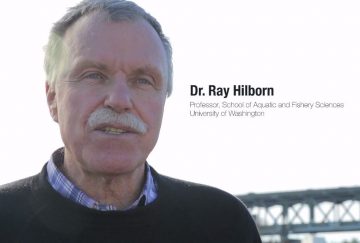 A new study has been published today by a scientific group led by University of Washington fisheries researcher Ray Hilborn that disputes previous findings on the impact of human and natural predation on forage fish such as anchovies, sardines and herring. The study, published in the scientific journal Fisheries Research, found that human fishing for forage fish does not have as great an impact on the food chain as previously thought, given that humans typically catch fish of much larger size than those typically hunted and eaten by non-human species. The study also decouples the link between the size of forage fish populations and the populations of species that predate on forage fish. “What we found is that there is essentially no relationship between how many forage fish there are in the ocean and how well predators do in terms of whether the populations increase or decrease,” Hilborn said in a video explaining the study’s findings. Video, continue reading the story here 11:47
A new study has been published today by a scientific group led by University of Washington fisheries researcher Ray Hilborn that disputes previous findings on the impact of human and natural predation on forage fish such as anchovies, sardines and herring. The study, published in the scientific journal Fisheries Research, found that human fishing for forage fish does not have as great an impact on the food chain as previously thought, given that humans typically catch fish of much larger size than those typically hunted and eaten by non-human species. The study also decouples the link between the size of forage fish populations and the populations of species that predate on forage fish. “What we found is that there is essentially no relationship between how many forage fish there are in the ocean and how well predators do in terms of whether the populations increase or decrease,” Hilborn said in a video explaining the study’s findings. Video, continue reading the story here 11:47
Will Obama use the State Departments “Our Oceans” Conference to designate canyons and seamounts National Marine Monument?
 The third installment of the Our Ocean forum will convene in Washington, D.C., this week and the betting window is open on whether the Obama administration will use the event to announce the designation of new National Marine Monuments. No one — neither conservationists nor fishing stakeholders — claims to know exactly what will happen when the two-day, international event opens Thursday. But it has not escaped anyone’s attention that the Obama administration has used the same forum in the past to make similar announcements. The Obama administration’s decision not to use the Antiquities Act to designate any portion of Cashes Ledge as a monument validated fishing stakeholders and others who characterized the proposal — which originated with the Conservation Law Foundation, the Natural Resources Defense Council and Pew Charitable Trusts — as an end-run around the existing fisheries management system and wholly unnecessary given the existing protections already afforded the area. Read the story here 07:55
The third installment of the Our Ocean forum will convene in Washington, D.C., this week and the betting window is open on whether the Obama administration will use the event to announce the designation of new National Marine Monuments. No one — neither conservationists nor fishing stakeholders — claims to know exactly what will happen when the two-day, international event opens Thursday. But it has not escaped anyone’s attention that the Obama administration has used the same forum in the past to make similar announcements. The Obama administration’s decision not to use the Antiquities Act to designate any portion of Cashes Ledge as a monument validated fishing stakeholders and others who characterized the proposal — which originated with the Conservation Law Foundation, the Natural Resources Defense Council and Pew Charitable Trusts — as an end-run around the existing fisheries management system and wholly unnecessary given the existing protections already afforded the area. Read the story here 07:55






